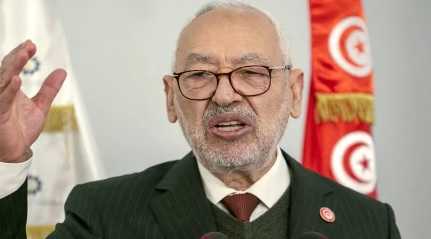
02 April 2022; MEMO: Speaker of the dissolved Tunisian Parliament Rached Ghannouchi confirmed on Friday that the people of his country are "well and resist autocracy", describing President Kais Saied's decision to dissolve Parliament as "serious and void".
This came in a statement to press correspondents after the Anti-Terrorism Unit investigated him in Tunis.
"We are committed to the constitution and democracy. We have confidence in the people who dawn the Jasmine Revolution (which toppled the late President Zine El Abidine Ben Ali in 2011) that they will preserve it. Despite the ordeal Tunisia is going through, we are optimistic about the future of democracy. Tunisia's future is prosperous as long as it commits to the constitution and the values of freedom," Ghannouchi expressed.
Earlier on Friday, the office of Ghannouchi announced that the authorities had summoned him: "To appear before the Unit for the Investigation of Terrorism Crimes."
On Wednesday, Parliament approved a law abolishing the exceptional measures taken by President Saied on 25 July, including freezing the powers of Parliament, issuing legislation by presidential decrees and dissolving the Supreme Judicial Council.
However, hours later, Saied announced the dissolution of Parliament in a televised speech: "In order to preserve the state and its institutions." He considered the Parliament meeting and what was issued by it as a "failed coup attempt".
Several political and social forces reject Said's exceptional measures and consider them a "coup against the constitution", while other forces support them as a "correction of the course of the 2011 Revolution" that overthrew the former President Zine El Abidine Ben Ali.
Saied, who started a five-year presidential term in 2019, said that his measures are "measures within the framework of the Constitution to protect the state from an imminent danger," stressing that freedoms and rights must not be violated.




